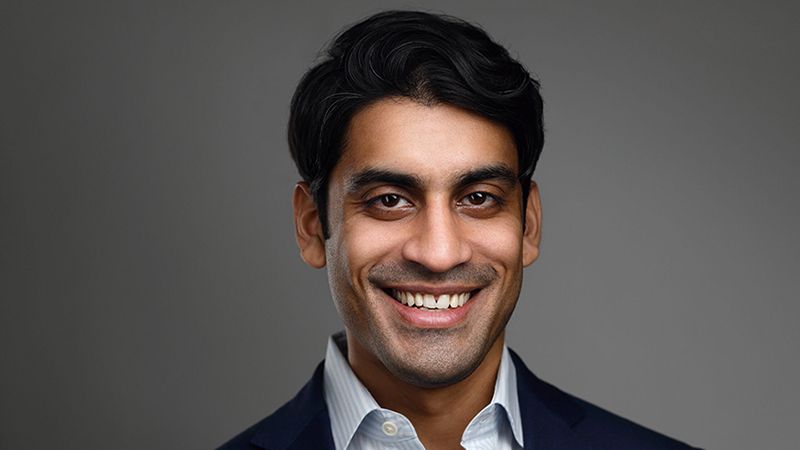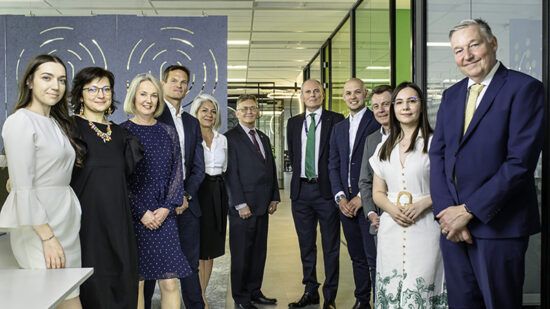Advances in biotechnology and artificial intelligence are enabling scientists to develop more effective treatments with fewer side effects.
As a new standard of treatment rapidly emerges, widespread adoption stands to create tremendous market growth. Our research suggests the AI-enabled drug discovery market alone will grow more than six times over in just six years, reaching a $3.9bn valuation by 2027.
Interestingly, medical innovation isn’t just coming from Big Pharma players. It’s also coming from the ambitious start-ups typically less well represented in investor portfolios.
With this in mind, we’ve highlighted three areas of the global healthcare market where such stocks are driving particularly significant disruption.
1) Curative therapies
Historically, the pharmaceutical industry has been structured around the chronic management of diseases. Drugs are developed, brought to market, and sold to growing patient populations before generics drive prices down.
Today, a paradigm shift is taking shape in which a single treatment might cure a disease and eliminate the need for ongoing care. These are known as curative therapies, and an excellent example is Casgevy from CRISPR Therapeutics.
Casgevy treats blood disorders like sickle cell disease and beta thalassemia with a single treatment, potentially curing the disease.
The UK and US have underwritten Casgevy at $2.2m per patient. This seems exorbitant, but it actually represents a significant cost-saving for healthcare systems because it avoids lifelong maintenance treatments and their associated expenses.
In diseases like sickle cell anemia, where only 10% of lifetime expenses are medication-related and the remaining 90% burden the healthcare system, a curative therapy shifts the entire cost dynamic.
Insurers now pay upfront for the cure. No competitive pricing pressure ensues, because once a patient is cured, they are no longer part of the patient population.
This new model differs profoundly from traditional drug commercialisation by absorbing the patient population before patent and exclusivity cliffs, making first-in-class drugs increasingly valuable.
Our research suggests advancements in CRISPR and other gene-editing technologies could spur the gene therapy market to surpass a valuation of $13bn by 2030.
2) AI-enabled drug discovery
AI is transforming drug discovery from a linear, labour-intensive process to a highly efficient, data-driven endeavour.
Companies like Recursion Pharmaceuticals and Absci are at the forefront of this transformation, using AI to reduce the cost of drug development by up to 60% and the discovery timeline by as much as 50%.
Recursion leverages AI to run millions of experiments simultaneously, automating the discovery process and reducing the risk of failure by allowing researchers to focus on the most promising candidates early on.
Meanwhile, Absci’s “zero-shot” approach to antibody development exemplifies the power of AI in drug discovery. By predicting the best design for a new antibody without the need for extensive trial and error, the company can shorten the drug development timeline and reduce costs significantly.
3) Multiomics and the future of cancer detections and treatment
By integrating data from diverse biological data sources, multiomics transforms the landscape of cancer detection and treatment while advancing our understanding of various other diseases, revolutionising the detection and treatment of cancer and beyond.
Liquid biopsies that sample blood or bodily fluid to check for signs of illness, without the need for invasive procedures or surgery, are supplementing traditional cancer monitoring methods that rely on imaging. These newer methods enable earlier and more accurate detection of minimal residual disease (MRD) – illnesses in the body that linger after treatment.
Companies like Natera and Guardant Health are pioneering this space with non-invasive tests that can detect cancer recurrence before it becomes apparent clinically.
Natera’s Signatera test, for example, already has a 70% market share in the MRD space and is capable of identifying residual cancer cells long before they would be visible on a scan.
Similarly, Guardant’s liquid biopsy tests are being used to monitor existing cancers and as primary screening tools for colorectal cancer, offering a less invasive alternative to traditional methods like colonoscopies.
Doctors can now detect cancer at an earlier stage than is possible by traditional methods. For instance, Personalis can detect specific biomarkers to identify breast cancer up to 15 months before it becomes visible through imaging techniques.
These technologies have profound implications.
By shifting cancer detection from a reactive to a proactive and predictive approach, healthcare practitioners can improve survival rates drastically while reducing the overall financial burdens on the healthcare systems.
Our research suggests the widespread adoption of these innovative diagnostic tools could grow the market for MRD testing alone from $10bn today to $120bn over the next business cycle.
Early-mover opportunity
There’s no doubt that AI is changing the world we live in. Technical innovations like these in the healthcare sector are creating a new era of healthcare defined by more rapid and more effective treatments. And as adoption starts to become more widespread, investment growth naturally stands to be huge.
To gain exposure at this early stage, however, investors must look beyond Big Pharma and to the ambitious start-ups using advances in biotechnology and AI to drive the sector forward.








